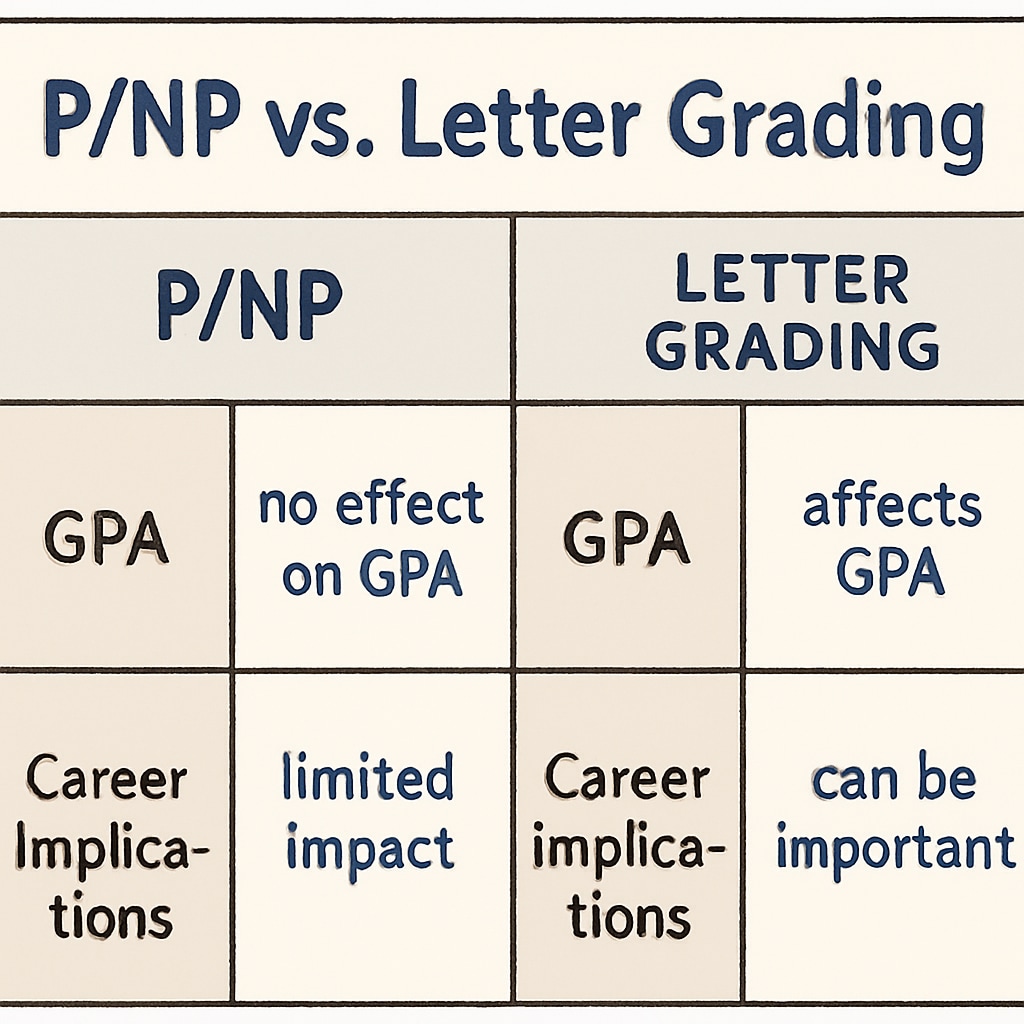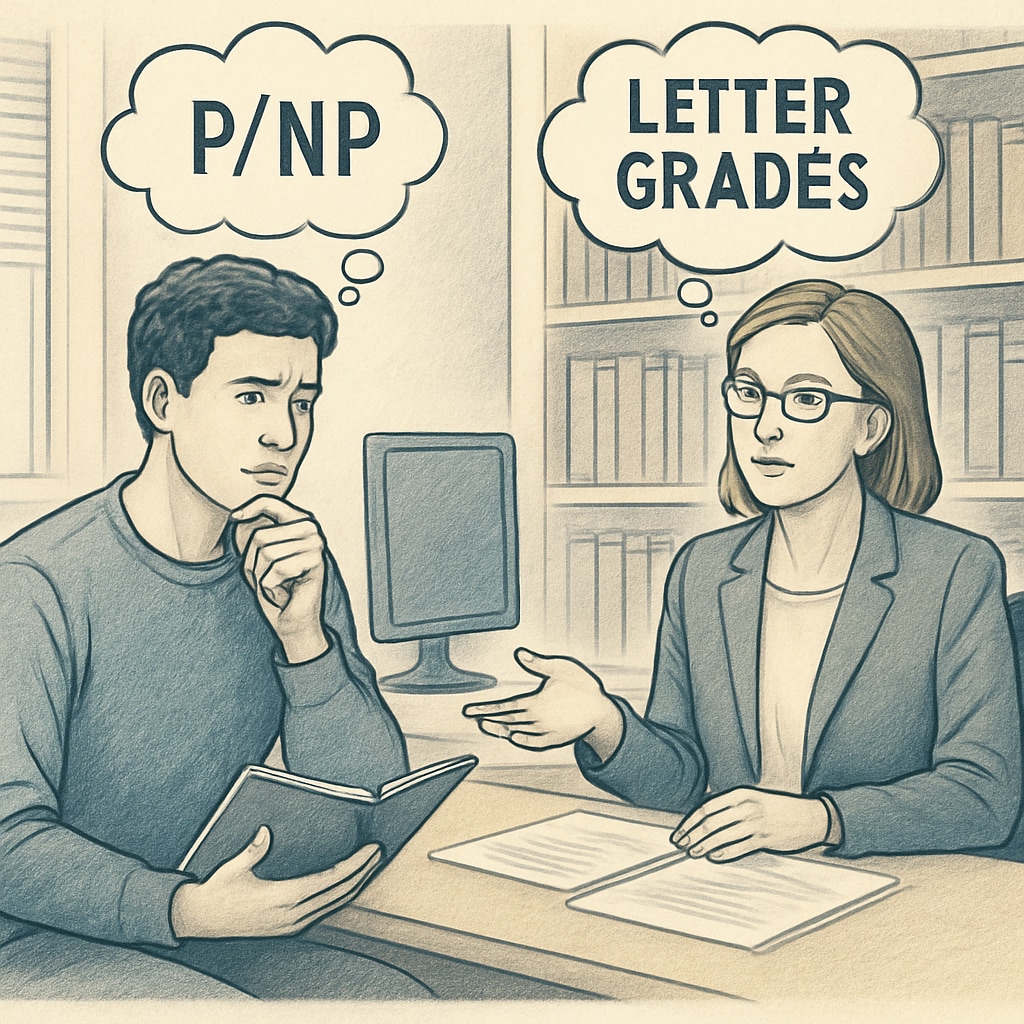For college students, the choice between Pass/No Pass (P/NP) grading and traditional letter grades can significantly impact their GPA, P/NP grading, and career prospects. This decision often feels like a strategic crossroad, where academic achievements and long-term goals must align. Understanding how these grading systems influence your transcript, GPA, and job market positioning is crucial for making an informed decision.
P/NP Grading vs. Letter Grades: What’s the Difference?
P/NP grading, also known as Pass/Fail in some institutions, allows students to focus on learning without the pressure of earning a specific letter grade. A “Pass” typically does not affect GPA, while a “Fail” may have negative consequences. In contrast, the traditional letter grading system assigns scores (e.g., A, B, C) that directly contribute to your GPA.
While P/NP grading offers flexibility, especially for challenging or exploratory courses, it comes with limitations. For example, some graduate schools and employers may question why P/NP was chosen over letter grades, particularly if they perceive it as an attempt to avoid a low score.

How GPA Affects Career Prospects
Your GPA is often the first metric employers or graduate admission committees evaluate. A high GPA reflects consistent academic performance and strong work ethic, and it may open doors to competitive opportunities. However, a low GPA could potentially limit access to internships, scholarships, and graduate programs.
Choosing P/NP grading can shield your GPA from the impact of a poor grade, but it also removes the possibility of boosting your GPA with an “A” or “B.” Therefore, the decision should align with your confidence in the subject matter and the long-term value of a higher GPA.
Strategic Approaches to Grading Choices
To decide between P/NP and letter grades, consider these factors:
- Course Difficulty: For subjects outside your major or known to be particularly challenging, P/NP can be a safety net.
- Professional Goals: If applying to competitive fields or graduate programs, prioritize letter grades to demonstrate academic rigor.
- GPA Status: If your GPA is near a critical threshold, P/NP may prevent further decline.
- Institutional Policies: Check if your school limits the number of P/NP courses allowed or if certain courses require letter grades.
Ultimately, the decision is about balance. While academic performance matters, employers also value skills, internships, and extracurricular achievements.

Long-Term Consequences of Grading Choices
Beyond immediate GPA concerns, grading choices can have lasting effects. For example, some industries prioritize GPA in early hiring stages, while others focus more on experience and competencies. Similarly, graduate programs may view P/NP grades differently; while some are lenient, others may interpret them as an inability to excel under pressure.
Therefore, maintaining transparency in applications and interviews is vital. If you choose P/NP, be prepared to explain how it contributed to your overall academic and professional growth.
Readability guidance: Use concise paragraphs and bullet points for clarity. Incorporate transitions like “therefore,” “however,” and “in addition” to ensure smooth flow. Avoid excessive passive voice and long sentences.


